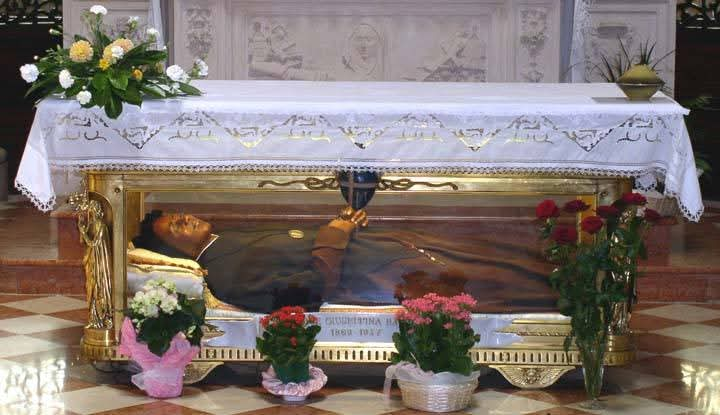“The Life of Saint Josephine Bakhita of Sudan”
The first saint from Sudan, Saint Bakhita the Virgin. Patron saint of victims of human trafficking. Santa Giuseppina Bakhita – Virgin
Family Background
The real name of Josephine Bakhita is unknown, as is her exact date of birth, but it is estimated that she was born in Darfur in a small village called Olgossa in 1869. She was of Nubian descent and spent part of her childhood in Olgossa with her parents, three brothers, and four sisters, one of whom was her twin sister.
Period of Slavery
When Bakhita was a young child, slave traders attacked her village and kidnapped her older sister. At that time, Sudan was an active market for kidnapping Black people and enslaving them. After the slave trade was banned in the West, its focus shifted to North Africa and the Arab markets. At that time, Sudan was under Egyptian-British control, and in 1856, the slave trade was officially prohibited in the country, but the government turned a blind eye to those who continued to practice it.
Bakhita herself suffered the same fate as her sister in 1876 or 1877, when she was approximately nine years old. She was also kidnapped and taken into slavery. She recorded in her memoirs that her kidnappers were Arab slave traders who sold her many times in the markets of El Obeid and Khartoum. Bakhita attributed her forgetting her real name to the suffering and terror she endured. “Bakhita” was the name given to her by her owners.
Ultimately, Bakhita was a slave to an Ottoman general, who, before leaving Sudan, decided to sell all his slaves. Bakhita was purchased by Callisto Legnani, who was then the Italian consul in Khartoum. The consul and his family treated Bakhita well compared to her previous experiences. She wrote about this period, saying that her new master was a kind man who did not subject her to beatings, rape, or insults.
In general, the period of slavery left 144 scars on Bakhita’s body, which remained with her until her death.
Towards Freedom
In 1885, the Mahdist revolt broke out in Sudan, forcing the Italian consul Legnani to leave the country. He returned by sea to Italy with his family, the friendly Michieli family, and Bakhita. Upon their arrival in Genoa, Mrs. Michieli asked the consul to keep Bakhita, so Bakhita went with the Michieli family to Zianigo, a suburb of Mirano Veneto in the province of Venice.
There, Bakhita was entrusted with the task of caring for the family’s young daughter, Mimmina, becoming her nanny and close friend. Later, Mr. August Michieli owned a large hotel in the port of Suakin on the Red Sea, and Mrs. Michieli wanted to join her husband to help him manage the hotel. Nuns from Venice agreed to the Michieli family’s request to take in Bakhita and Mimmina for a period of time.
There, Bakhita converted to Christianity. When her mistress asked her to return to Sudan with Mimmina, she refused and decided to stay with the nuns. No one could force her to return since she was residing in Italy and therefore was not considered a slave according to Italian law, which did not recognize slavery at all.
Her Life as a Christian
Several months later, Bakhita received the sacrament of Christian baptism, officially becoming a Christian on January 9, 1890. She was given the new name Josephine. Bakhita dedicated her life entirely to church service on December 8, 1896, at the Institute of St. Magdalene of Canossa (Daughters of Charity and Mercy).
In 1902, Josephine Bakhita moved to Schio, where she spent more than fifty years serving in the convent. Bakhita was beloved in that area, and everyone called her “the Little Black Mother.” In her old age, Bakhita suffered from illness and passed away on February 8, 1947.
Her Canonization
On May 17, 1992, Pope John Paul II declared Josephine Bakhita blessed, and she was declared a saint according to Catholic tradition on October 1, 2000. This is a very high rank in the Catholic Church, in recognition of her life and the sacrifices she made. Her feast day is celebrated annually on February 8.
Pray for us, Saint Josephine Bakhita. Amen.
Catholic Saints
